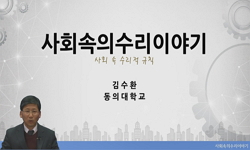The government strictly managed Jeju-do residents' duty for the nation according to their status (jikyeok: 職役) until the 1870s. Therefore, residents' class mobility-related various information can be obtained through Jeju island family register. ...
http://chineseinput.net/에서 pinyin(병음)방식으로 중국어를 변환할 수 있습니다.
변환된 중국어를 복사하여 사용하시면 됩니다.
- 中文 을 입력하시려면 zhongwen을 입력하시고 space를누르시면됩니다.
- 北京 을 입력하시려면 beijing을 입력하시고 space를 누르시면 됩니다.

조선후기 호구정책과 문중형성의 관계 - 제주도 대정현 하모리 사례 - = Relationship between the Household Policy and Descendant Group Formation in Late Joseon Dynasty -Case of Hamo Village Daejeong County Jeju Island-
한글로보기https://www.riss.kr/link?id=A104852235
-
저자
김건태 (서울대학교)
- 발행기관
- 학술지명
- 권호사항
-
발행연도
2014
-
작성언어
Korean
-
주제어
호적 ; 호구정책 ; 문중 ; 신분 ; 계층이동 ; Household Register ; Household Policy ; Descendant Group ; Status ; Class Mobility
-
등재정보
KCI등재
-
자료형태
학술저널
-
수록면
3-33(31쪽)
-
KCI 피인용횟수
5
- 제공처
- 소장기관
-
0
상세조회 -
0
다운로드
부가정보
다국어 초록 (Multilingual Abstract)
In the 19th century, when the government imposed residents' duty for the nation according to their status, based on the strict standard, the status of ancestors impacted their descendants the most powerfully. The status ascent of descendants, belonging to the middle class of free citizens, to the upper class was extremely difficult. To the descendants of the lower class of free citizens and slave servants, the way to ascend to the upper class of free citizens was actually closed.
In Jeju island in the 19th century, the same clan living the same village did not even think they were the same kind of people having the same ancestors. The reason is that household register disturbed their unity. The household register in reality had more power than the ancestral gods. The household register was a fearful subject itself to the Jeju island residents in the 19th century, because, the government collected almost all the taxes, based on the household register. In late 19th century, the tax amount imposed upon the Jeju residents was enormous enough to shake their life basis. In such a situation, those who can escape from the tax pressure to some degree, tend to have privileged sense. In this regard, residents' duty for the nation according to their status was more important than the fact of the same surname and the same family origin to the Jeju island residents.
The government strictly managed Jeju-do residents' duty for the nation according to their status (jikyeok: 職役) until the 1870s. Therefore, residents' class mobility-related various information can be obtained through Jeju island family register.
In the 19th century, when the government imposed residents' duty for the nation according to their status, based on the strict standard, the status of ancestors impacted their descendants the most powerfully. The status ascent of descendants, belonging to the middle class of free citizens, to the upper class was extremely difficult. To the descendants of the lower class of free citizens and slave servants, the way to ascend to the upper class of free citizens was actually closed.
In Jeju island in the 19th century, the same clan living the same village did not even think they were the same kind of people having the same ancestors. The reason is that household register disturbed their unity. The household register in reality had more power than the ancestral gods. The household register was a fearful subject itself to the Jeju island residents in the 19th century, because, the government collected almost all the taxes, based on the household register. In late 19th century, the tax amount imposed upon the Jeju residents was enormous enough to shake their life basis. In such a situation, those who can escape from the tax pressure to some degree, tend to have privileged sense. In this regard, residents' duty for the nation according to their status was more important than the fact of the same surname and the same family origin to the Jeju island residents.
참고문헌 (Reference)
1 정진영, "조선후기 호적대장 '호(戶)'의 편제(編制) 양상 - 『제주 대정현 하모슬리 호적중초』(1843-1907)의 분석 -" 한국역사연구회 45 (45): 227-262, 2002
2 심재우, "조선후기 단성현 법물야면 유학호의 분포와 성격" 55 : 2001
3 鄭亨芝, "조선후기 交濟創의 설치와 운영" 28 : 1995
4 "耽羅職方說"
5 최재석, "濟州島의 親族組織" 일지사 1979
6 "歸田錄 處族親"
7 권내현, "朝鮮後期 戶籍의 作成過程에 대한 分析" 39 : 2002
8 善生永助, "朝鮮の聚落, 조선총독부"
9 김건태, "戶口出入을 통해 본 18세기 戶籍大帳의 編制方式 - 丹城戶籍大帳을 중심으로" 대동문화연구원 44 : 171-207, 2003
10 "備邊司謄錄 숙종 45년 10월 7일"
1 정진영, "조선후기 호적대장 '호(戶)'의 편제(編制) 양상 - 『제주 대정현 하모슬리 호적중초』(1843-1907)의 분석 -" 한국역사연구회 45 (45): 227-262, 2002
2 심재우, "조선후기 단성현 법물야면 유학호의 분포와 성격" 55 : 2001
3 鄭亨芝, "조선후기 交濟創의 설치와 운영" 28 : 1995
4 "耽羅職方說"
5 최재석, "濟州島의 親族組織" 일지사 1979
6 "歸田錄 處族親"
7 권내현, "朝鮮後期 戶籍의 作成過程에 대한 分析" 39 : 2002
8 善生永助, "朝鮮の聚落, 조선총독부"
9 김건태, "戶口出入을 통해 본 18세기 戶籍大帳의 編制方式 - 丹城戶籍大帳을 중심으로" 대동문화연구원 44 : 171-207, 2003
10 "備邊司謄錄 숙종 45년 10월 7일"
11 허원영, "19세기 제주도의 호구와 부세운영" 한국학중앙연구원 한국학대학원 2006
12 송양섭, "19세기 유학층(幼學層)의 증가양상 - <<단성호적대장>>을 중심으로 -" 한국역사연구회 55 (55): 323-345, 2005
13 姜昌龍, "19세기 濟州社會 硏究" 일지사 1997
14 김건태, "18~19세기 제주도 여성의 결혼과 출산" 대동문화연구원 (65) : 311-349, 2009
15 이영훈, "18-19세기 農家의 家系繼承의 추이-경상도 丹城縣 法勿也面 戶籍에서-" 경제사학회 39 : 3-25, 2005
동일학술지(권/호) 다른 논문
-
18·19세기 단성호적 가족복원을 통한 혼인·출산의 계층성 분석
- 서울대학교 규장각한국학연구원
- 손병규
- 2014
- KCI등재
-
- 서울대학교 규장각한국학연구원
- 김현식
- 2014
- KCI등재
-
- 서울대학교 규장각한국학연구원
- 윤대원
- 2014
- KCI등재
-
달성 서씨를 통해 본 조선후기 신분변화의 장기 추세와 그 의미 -『달성서씨족보』와 『대구부호적대장』을 중심으로 -
- 서울대학교 규장각한국학연구원
- 권기중
- 2014
- KCI등재
분석정보
인용정보 인용지수 설명보기
학술지 이력
| 연월일 | 이력구분 | 이력상세 | 등재구분 |
|---|---|---|---|
| 2027 | 평가예정 | 재인증평가 신청대상 (재인증) | |
| 2021-01-01 | 평가 | 등재학술지 유지 (재인증) |  |
| 2018-01-01 | 평가 | 등재학술지 유지 (등재유지) |  |
| 2015-01-01 | 평가 | 등재학술지 유지 (등재유지) |  |
| 2011-01-01 | 평가 | 등재학술지 유지 (등재유지) |  |
| 2009-01-01 | 평가 | 등재학술지 유지 (등재유지) |  |
| 2006-05-23 | 학회명변경 | 한글명 : 한국문화연구소 -> 규장각한국학연구원영문명 : Institute of Korean Studies -> Kyujanggak Institute for Korean Studies |  |
| 2006-01-01 | 평가 | 등재학술지 선정 (등재후보2차) |  |
| 2005-01-01 | 평가 | 등재후보 1차 PASS (등재후보1차) |  |
| 2004-01-01 | 평가 | 등재후보학술지 유지 (등재후보1차) |  |
| 2003-01-01 | 평가 | 등재후보학술지 선정 (신규평가) |  |
학술지 인용정보
| 기준연도 | WOS-KCI 통합IF(2년) | KCIF(2년) | KCIF(3년) |
|---|---|---|---|
| 2016 | 0.83 | 0.83 | 0.82 |
| KCIF(4년) | KCIF(5년) | 중심성지수(3년) | 즉시성지수 |
| 0.85 | 0.85 | 2.07 | 0.37 |




 KCI
KCI







